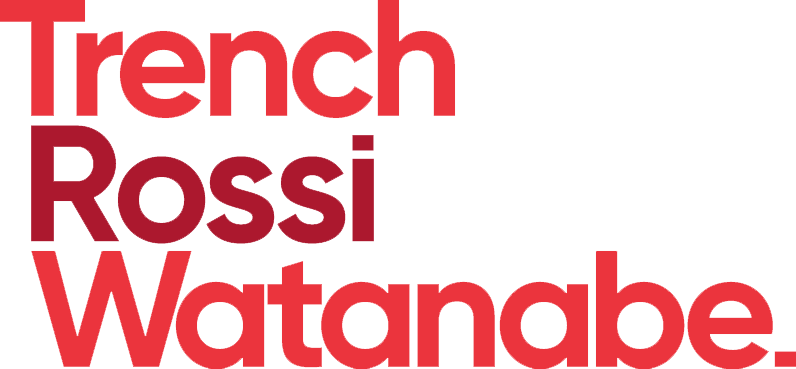In brief
The Brazilian Institute of the Environment and Renewable Natural Resources (IBAMA) established a new way of calculating the Environmental Control and Inspection Fee (TCFA) and, as of the first quarter of 2024, the economic size to be declared by subsidiaries will be the economic size of the parent company and the subsidiary jointly, considering the annual gross income of the legal entity as a whole for the basis for calculating this fee. The legal deadline for payment of the first installment of the TCFA was 5 April.
For a better understanding of the changes applied by IBAMA and the impacts on taxpayers, we provide below details on the concept of the TCFA and how IBAMA previously applied the tax.
Contents
Further details
General information on TCFA and calculation of the amount up to 2023
The TCFA is a fee charged for the regular exercise of the environmental authorities’ police powers to control and supervise potentially polluting activities and the use of natural resources. In general, any individual or legal entity that carries out a potentially polluting activity and/or uses the natural resources listed in Annex VIII of Federal Law No. 6.938/1981, or in Annex I of Normative Instruction No. 06/2013, must pay the TCFA on a quarterly basis.
The amount of the TCFA is defined by the degree of polluting potential and the economic size of the enterprise, and can vary from BRL 128.90 to BRL 5,796.73. The information is provided by the taxpayer themselves from their registration in IBAMA’s Federal Technical Register of Potentially Polluting Activities and Users of Environmental Resources (“CTF/APP“).
Previously, for legal entities with head offices and branches, size was determined based on the gross annual income of each individual establishment. In this way, branches with minimal turnover paid the minimum amount for the TCFA, even if their head office and/or other branches were large.
The TCFA is calculated on the last working day of each quarter and payment must be made by the fifth working day of the following month. Thus, for the first quarter of 2024, payment should have been done by April 5th.
Change of understanding resulting from Opinion No. 01/2023/DITRIB/PFE-IBAMA-SEDE/PGF/AGU and IBAMA Ordinance No. 260/2023
From 2024 onwards, the economic size to be declared by subsidiaries will be that of the head office and the subsidiary jointly, considering the annual gross income of the legal entity as a whole for the basis of calculating the fee. The change in understanding about the calculation of the TCFA occurred in the context of an administrative process that discussed the assessment of a company in the road transport sector, in which IBAMA identified a divergence in the size of the company declared in the CTF/APP and that registered with the Federal Revenue Service.
In Opinion No. 01/2023/DITRIB/PFE-IBAMA-SEDE/PGF/AGU, issued in the case file, the Specialized Federal Prosecutor’s Office at IBAMA stated that, although they have administrative and operational autonomy for inspection purposes, the branches do not have legal autonomy, since there is a relationship of dependence between the CNPJ of the branches and that of the head office. It therefore concluded that, for the purposes of calculating the TCFA, the definition of economic size should consider the gross income of the legal entity as a whole (head office and branches together), and that this understanding should be applied from the first quarter of 2024.
As a result of this new understanding, on 20 December 2023, IBAMA published IBAMA Ordinance No. 260/2023, which provided for the rectification of the size declared by the TCFA taxpayer.
Impact on taxpayers
The impact of this change could be significant, since subsidiaries that were previously considered small may, based on an assessment of their joint gross income with the other establishments in the same group, be characterized as medium or large, which will result in an increase in the amount of TCFA owed to the establishment. According to the Ordinance, legal entities whose economic size has changed must rectify the size declared for the 2024 financial year before IBAMA, by submitting the respective supporting documents.
IBAMA proceeded to change its understanding of the calculation of the TCFA without any change having been made to the law that instituted the TCFA, which is already resulting in questions being raised before the Judiciary by some companies.
This is because the IBAMA Ordinance, in the way it was issued, ended up distorting the way fees are collected, since the law is clear in providing that the value of the TCFA, even if per establishment, will be based on the degree of use of natural resources (small, medium or high), and on the size of the company.
In this sense, it is possible to argue that the Ordinance offends the principle of legality, as it provides for a calculation method that differs from the law, as well as distorting the concept of the retributiveness of the value of the fee, since this must always respect a correlation between the requirement and the inspection activity being carried out.
In this regard, there are already rulings against the TCFA increase. The Federal Courts of São Paulo and Minas Gerais have already granted injunctions in writs of mandamus to set aside the increase in the TCFA as provided for in item “b” of item II of article 13 of IBAMA Ordinance No. 260/2023, and for the plaintiffs to pay the TCFA in 2024 and subsequent years, taking into account the turnover of each subsidiary.
* * * * *

Trench Rossi Watanabe and Baker McKenzie have executed a strategic cooperation agreement for consulting on foreign law.







